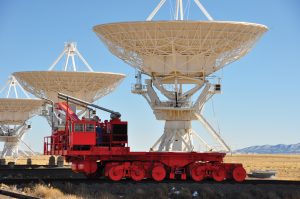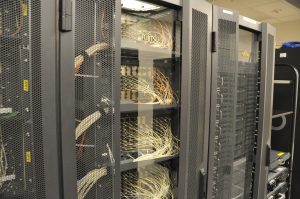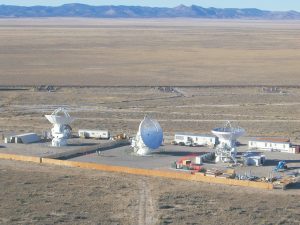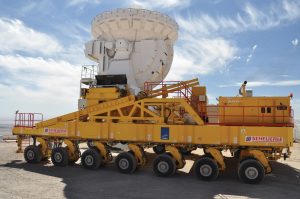There are over 40 miles of double tracks stretched throughout the VLA for these transporters. These massive machines can gently lift and carry these 230-ton antennas around the array with ease. The antennas’ distances from each other are changed several times a year to change the VLA’s eye on the sky. Each one cycles into and out of the Antenna Assembly Building for routine servicing over the course of several years.


A VLA Transporter stopped on the tracks
There are only two Antenna Transporters at the Very Large Array that are used to move antennas into new configurations. Here we can see the massive red machine stretched across the tracks.

Mountains surrounding the VLA
The Very Large Array in central New Mexico is surrounded by the San Mateo Mountains, which can be seen in the distant background of this photo.

The Fujitsu Correlator at ALMA
This supercomputer combines the images taken by ALMA’s Atacama Compact Array. A tightly-grouped array of 7-meter antennas cornered by four, 12-meter antennas, the ACA forms the sensitive heart of ALMA.

ALMA prototypes tested at the VLA
All three prototype ALMA antennas at the test facility on the site of the Very Large Array in New Mexico. From left to right are the Japanese, North American, and European models. Behind them are the temporary offices and control rooms created using the cargo containers used to ship in the parts. This test facility was occupied from April 2003 through November 2012.

Transporting 7-meter antennas around ALMA
The first of Japan’s 7-meter antennas for ALMA is seen here on its voyage from assembly site to testing.





